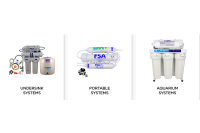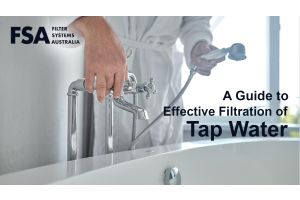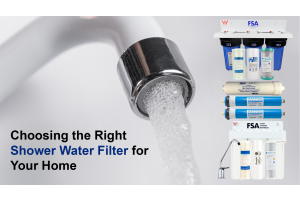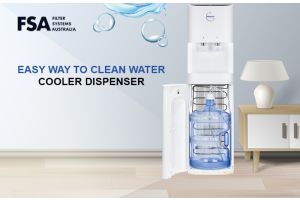Do you know there are many unpleasant things available in your tap water than you can ever imagine? That’s because water is really good at dissolving stuff; so, whatsoever resides in your water, it might get dissolved within, which makes it harder for the naked eyes to see.
Besides, it’s difficult to get rid of bits of dirt, bacteria and toxic substances present in your water supply. In fact, sometimes even the government watchdogs find it difficult to find out the reason behind these impurities. And by the time they find it, it is too late.
Therefore, it’s up to the residents to prevent themselves from being exposed to the contaminants detected in the water and adopt effective measures.
But understand, not all water filters are designed equally. In fact, there’s about a zillion different kinds available in the market and you need to pick the one that best suits your requirements.
If you haven’t yet decided, please consider reading our blog on house water filter. This will give you a good start and make your thoughts clearer before investing in a filter.
In this blog, you’ll discover key points that you should know before purchasing a filter for your place.

WHICH ONE TO GO FOR: WHOLE HOUSE WATER FILTER TREATMENT or DRINKING WATER FILTRATION
You’ll basically find two different types of water filter systems in the market for your home.
1. Point of Use (POU) system is used to filter water right where you use it and is best suited for installation at as single connection point with slight usage. These filters are typically connected to a water line under the sink, or to your tap to provide drinking water as well as filtered water for cooking and bathing.
If you simply want to improve the drinking water flowing from your kitchen tap, then a POU system like a reverse osmosis filter will probably do the trick.
2. Point of Entry (POE) system is installed in the main water line in your home and filters water before it reaches any outlet points such as washing machines, bathroom, toilet and sinks. A point of entry system aka whole house water filter ensures water is treated before travelling through your water pipes, preventing any clogs during distribution to the main points.
When choosing one, you need to be clear and decide whether you want to treat just the drinking water at your kitchen tap or would like to treat sources from where water enters your home.
Often an effective and the best solution is a combination of whole house water treatment and further refined treatment at the sink for drinking and cooking.
DO YOU GET YOUR WATER FROM A PRIVATE WELL OR CITY WATER?
Though public water supply is relatively safe, hundreds of contaminants in the water are not regulated by the EPA.
Private well water users have their own sets of concerns. It was found in a study that almost 40% of wells contain some sort of bacteria. Installing a UV water purification system can provide whole home protection from harmful microorganisms.
Depending on the types of impurities and their level in your water, you can find a variety of water treatment options in the market.
TOTAL NUMBER OF BATHROOMS IN YOUR HOME
This point is essential because some water treatment systems are size- based on the maximum water flow rate through your home.
From the shower to dishwasher and toilet and washing machines, you probably have several water-related chores going on in your home at the same time during the morning hours.
So, how much water should be flowing through your home during these peak usage times?
Definitely a lot.
Considering the total number of bathrooms in your home is often an easy way to figure out the size of filter your home needs for water treatment.
NUMBER OF PEOPLE RESIDING IN YOUR HOME
Think how much water is used 24*7 in your home?
Though it’s difficult to estimate the exact quantity being used throughout the day, counting and giving complete information about the number of people in a household to the expert can give you a better understanding and clues about the overall household water usage. Accordingly, you’ll able to pick the one that fits well within your day-to-day requirements without causing any shortage of water.
FIND OUT WHAT’S IN YOUR WATER
Go to your local water supplier’s website and get the water quality report. Understanding what’s in your water will play a big part in evaluating your water treatment needs. Like if you have high levels of chlorine in your water, you should be looking for a chlorine removal filter that can get rid of chlorine along with other common contaminants in your water.
Also, consider paying attention to public water supply notice to know about what they are doing.
To determine which water filtration solution would be best for your home, first determine the above-mentioned details and share the same with one of our water filter specialists. At Filter System Australia, we listen to your requirements and based on that, suggest the best filter available in the market for you budget and needs.




